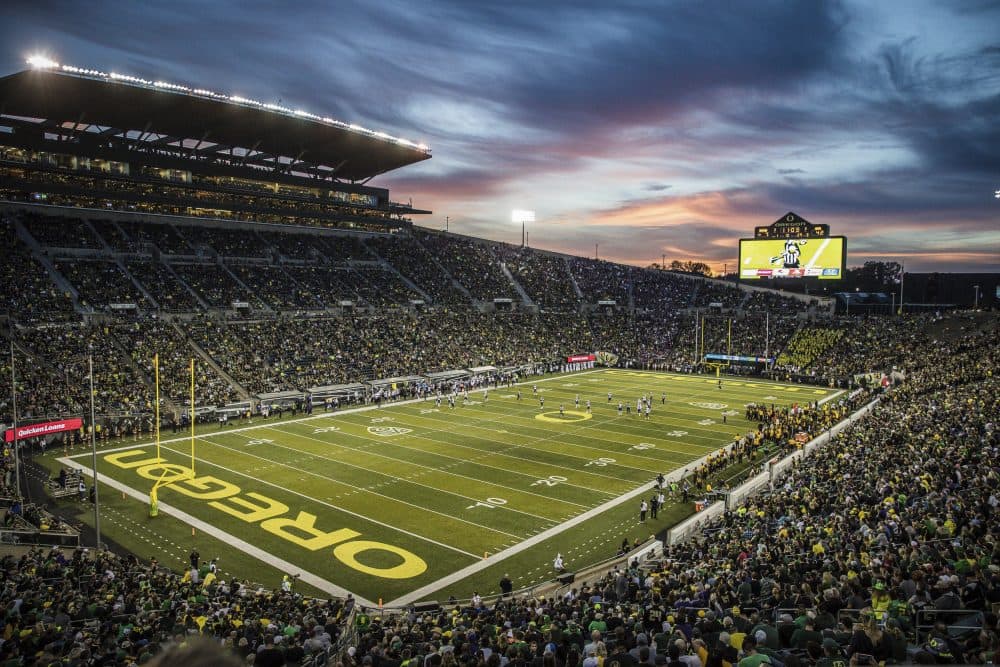Advertisement
3 Stories: Oregon Players Hospitalized, Allonzo Trier, Sports Gambling
Resume
Three members of the University of Oregon's football team were hospitalized after a series of workouts, The Oregonian reported on Tuesday. A day after reports surfaced, Oregon suspended its new strength and conditioning coach, Irele Oderinde, for a month without pay. First up on this week's "3 Stories You Should Know," what happened at Oregon? And, what can be done to prevent it from happening in the future?
Cindy Boren of the Washington Post and Patrick Hruby of Vice Sports join Bill Littlefield.
1. Athlete Safety At Oregon
Head coach Willie Taggard of the Oregon football team apologized and took responsibility for the training sessions that left his players hospitalized saying, "As the head football coach, I hold myself responsible for all of our football-related activities and the safety of our students must come first." Despite the suspension of the team's strength and conditioning coach, Cindy Boren thinks there's more the NCAA should do to assure safety in sports.
[Oregon has] a state-of-the-art strength and training facility that costs something like $68 million, but, evidently, the supervisory standards that are, you know, just a notch below your average day care center. ... Should the NCAA be looking into maybe establishing standards for strength and conditioning coaches? The NCAA and the University of Oregon need to use this as an excuse to take a good long look at their standards.
2. NCAA PED Policy
Arizona basketball guard Allonzo Trier has yet to play this season after testing positive for a performance-enhancing drug during the preseason. Trier appealed the decision — claiming he never knowingly took the banned substance — and won. But the NCAA told Trier he couldn't play until the drug is completely out of his system. Patrick Hruby attempts to make sense of the NCAA's policy.
To me this kind of speaks something good about the NCAA, which is, unlike we see in some other sports, they are actually able to take an appeal, listen to it and say, "You know what, we're gonna believe you. We're not just gonna hold you flat out responsible for everything in your body, period." But on the flip side, this idea of you have to get below this certain threshold, even though whatever it is is not helping you at all, it's not actually enhancing your performance — that seems a little bit ridiculous.
3. Uncertain Future Of Sports Betting
This week, the U.S. Supreme Court put off the decision on whether to hear an appeal from the state of New Jersey to legalize sports betting. They want to hear from the U.S. Solicitor General first. Bill Littlefield wonders how the potential legalization could affect sports.
People already bet billions of dollars each year on sports illegally — at the corner store or the bar or wherever. Would legalizing sports betting change that behavior, and would it change anything about the games? And if the answer is no, should it simply be legalized? Should there be 50 states in which you can bet on the Super Bowl legally? ... The issue for me is that if sports gambling were to become legal, more and more people would do it.
More Stories You Should Know
This segment aired on January 21, 2017.